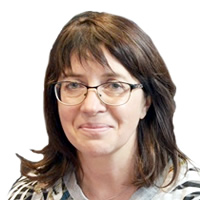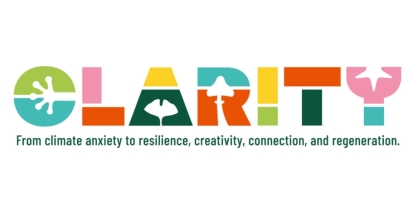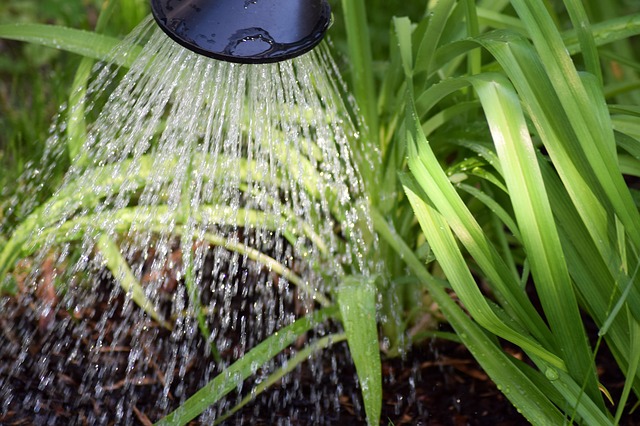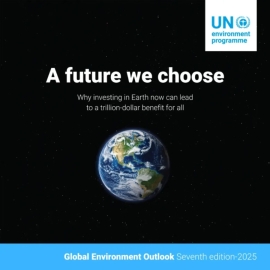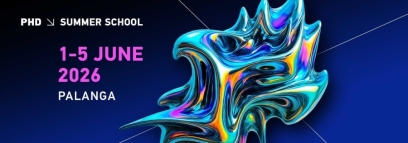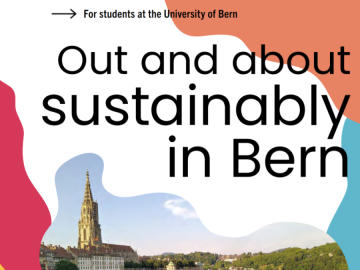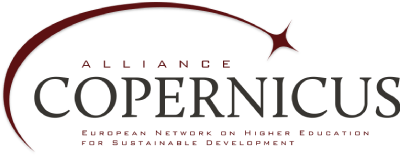#5 03/2020
Anna Batorczak
Enthusiastic educator for sustainable development and believer in the power of women to lead change
| _ |
"One cannot overestimate the importance of observing reactions and listening to direct feedback. I am deeply convinced that I cannot be an educator only by studying theory and science." |
Anne Zimmermann (AZ) Today we are celebrating 8 March 2020 – Women’s Day! What is your #EachforEqual message for today?
Anna Batorczak (AB) If I could use a metaphor I would say – “Ecology has a woman’s face”. The term “Ecology” comes from Greek οἶκος, meaning "house", or "environment"; and -λογία, referring to “knowledge of”. The traditional role of women is to look after the home. There is no doubt that the Earth is our home – the only home we have – and we should really care about it. We even used to say “our Mother Earth”. It is not without reason that in both the Millennium Goals and the Sustainable Development Goals, gender equity is very high on the list of priorities. This is because the global community believes that educated women can be true agents of change towards sustainability. And indeed, the activities of women like Wangari Maathai, Berta Cáceres, Marina Silva, Naomi Klein, Greta Thunberg and many, many other brave women are changing the world towards a better, sustainable future. Working with my students and teaching environmental education and education for sustainable development (ESD) I observe that in everyday activities, young women are leaders of change.
AZ I’m sure you don’t imply that only women, not men, can be leaders of change towards sustainability. I guess that your point is: It’s still necessary to insist on the fact that women are good leaders as well. This is often silenced, leading to disempowerment of women. And without gender equity, we won’t be able to move towards sustainability. I like your interpretation of the etymology of “ecology” because it points to the paradox that we speak of “Mother Earth” but forget about women as powerful actors when it comes to our discourse about who should lead transformation processes in society…
Can you tell us about how you celebrate Women’s Day at the University of Warsaw? And in your view, is it important to celebrate it in the context of higher education institutions?
AB In Poland before the Transition in 1989, Women’s Day was very much celebrated and it was the equivalent of Valentine’s Day, which did not exist at the time. So this was an opportunity to say to women who one loved how special they are, go for a romantic dinner, etc. But the celebration was also quite official. In communist times in Poland, working women were greatly supported by the government; and as far as I can remember, most of the women in Poland were employed then, at least in cities. So in those days every woman would get an official present at work, like a flower and… something like tights. This was embarrassing but at the same time still valuable and appreciated. It was not easy to buy tights in those days. But then, after the Transition, for many people in Poland Women’s Day was associated with communism and ceased to be so important. Now this is changing again but we do not attach much importance to this day at universities. In my opinion it is a pity because I am convinced that women have wisdom, intelligence, power, energy and emotions that are crucial for real change. This should be highlighted and displayed at universities, as they set the tone for the development of societies.
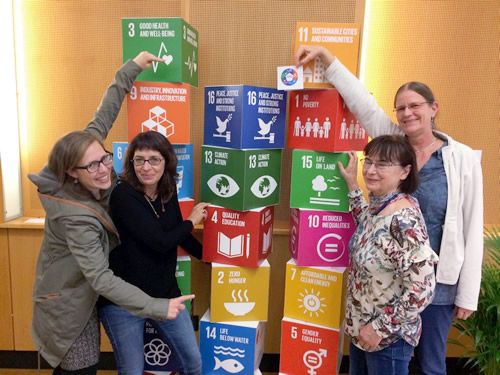 AZ Thank you for providing this interesting insight into the ambiguous link between Valentine’s Day and Women’s Day in the days of the former Soviet Union. It’s really fascinating and would be a great way of continuing our conversation! But I’d like to pick up on what you say about the role of universities in society, especially in relation to sustainable development, and the place women have in fulfilling this role. Let me rewind the film of our personal history a bit: We met for the first time at the COPERNICUS Alliance (CA) Annual General Meeting in 2017 and felt very inspired by the three-day CA conference – the Hamburg Sustainable Development Summit (HSDS) 2017 organized by the Center for a Sustainable University at the University of Hamburg. We discovered that we had the same passion for finding ways of teaching differently at our universities and preparing students for the major global challenges they will be facing in future. And we also discussed how to take into account the Sustainable Development Goals in our teaching and other activities at our universities. We posed in front of the SDGs and pointed to the ones we cared most about; while your colleague Anna Kalinowska chose SDG15, you pointed to SDG4, Education! Why is it the most important one for you?
AZ Thank you for providing this interesting insight into the ambiguous link between Valentine’s Day and Women’s Day in the days of the former Soviet Union. It’s really fascinating and would be a great way of continuing our conversation! But I’d like to pick up on what you say about the role of universities in society, especially in relation to sustainable development, and the place women have in fulfilling this role. Let me rewind the film of our personal history a bit: We met for the first time at the COPERNICUS Alliance (CA) Annual General Meeting in 2017 and felt very inspired by the three-day CA conference – the Hamburg Sustainable Development Summit (HSDS) 2017 organized by the Center for a Sustainable University at the University of Hamburg. We discovered that we had the same passion for finding ways of teaching differently at our universities and preparing students for the major global challenges they will be facing in future. And we also discussed how to take into account the Sustainable Development Goals in our teaching and other activities at our universities. We posed in front of the SDGs and pointed to the ones we cared most about; while your colleague Anna Kalinowska chose SDG15, you pointed to SDG4, Education! Why is it the most important one for you?
AB Indeed, I am quite passionate about education for SD. This fascination started many years ago when Anna Kalinowska, the former director of the University Centre for Environmental Studies and Sustainable Development and my great mentor, invited me to be the coordinator of an international project founded by the Phare programme (Poland and Hungary: Assistance for Restructuring their Economies). The project aims at developing educational materials for schools in Poland to promote environmental education using an inter-subject approach. This means that the subject of ecological education can be undertaken from the perspective of all subjects. As a result, “Green Path” books were created covering lesson scenarios for younger and older students at primary schools. The project also produced a teacher’s guidebook. The “Green Path” was a very modern approach to the concept of environmental education (EE) and proposed methods of teaching that were path-breaking in 1996, at least in Poland. And it was successful – the books were translated and published into Lithuanian and Slovenian.
This is how my adventure with EE and later also ESD started. Since then, I have been the coordinator of a number of national and international educational projects financed by the European Commission. As a lecturer at the University of Warsaw I run two academic courses: “Environmental education” for students enrolled in the Inter-Faculty Studies in Environmental Protection programme; and “Education, communication and cooperation for SD” for students in the Sustainable Development programme. Recently I became the coordinator of a newly launched graduate programme in Sustainable Development at UW; we started in the academic year 2019/20. This course is run in English and is one of the most international among our study programmes at the University of Warsaw, with students from countries like Azerbaijan, Belarus, India, Iran, South Korea, Nigeria, Rwanda, Salvador, and Ukraine.
Developing and running educational projects as well as working with students gives me great pleasure and satisfaction. I definitely feel much more of a teacher and educator than a scientist.
AZ That is an interesting comment! However, you probably still believe that science is important for sustainable development, otherwise you would not be training students at a university… Can you tell us more about the understanding of science that you try to hand on to your students? And about your own university training?
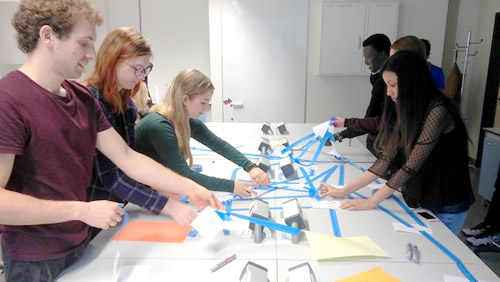 AB Definitely, I believe in science! That is why I chose to work at the University and not in an NGO, for example. However, this option is sometimes very tempting… But more seriously: Education for Sustainable Development is still not really common in the higher education sector and maybe particularly at universities in central and eastern Europe. When we look at the bigger picture and ask the question “how can sustainable development be applied as a guiding principle for university education,” we won’t find many universities that have succeeded in showing the way. This is because such an approach raises many challenges, from curricular mainstreaming, methodological and structural approaches, through to the identification of indicators and a benchmark system, right to cooperation between the sciences and practice. All of these require research, comparative case studies, analysis, as well as international cooperation and intercultural dialogue on higher education.
AB Definitely, I believe in science! That is why I chose to work at the University and not in an NGO, for example. However, this option is sometimes very tempting… But more seriously: Education for Sustainable Development is still not really common in the higher education sector and maybe particularly at universities in central and eastern Europe. When we look at the bigger picture and ask the question “how can sustainable development be applied as a guiding principle for university education,” we won’t find many universities that have succeeded in showing the way. This is because such an approach raises many challenges, from curricular mainstreaming, methodological and structural approaches, through to the identification of indicators and a benchmark system, right to cooperation between the sciences and practice. All of these require research, comparative case studies, analysis, as well as international cooperation and intercultural dialogue on higher education.
You’re asking about my own path? As I mentioned before, at the University of Warsaw, I teach subjects related to environmental education and education for sustainable development. I got my MSc in biology with a specialisation in ecology, but I completed my PhD at the faculty of pedagogy and this background is really useful in my profession. What I value most in my work is first-hand experience – the interaction with students and non-academic participants in my projects. One can’t overestimate the importance of observing reactions and listening to direct feedback. I am deeply convinced that I cannot be an educator only by studying theory and science.
AZ I completely agree; and indeed, there is a lot of deep learning in teaching and coaching students. Can you tell me where you got your inspiration for ESD? Is this something that was accessible to you when you were doing your PhD, or did you acquire ESD knowledge and experience after this degree?
AB My motivation for ESD started when I was coordinating an international education project. A lot of inspiration at the time came from the British charity organisation’s Field Studies Council, which runs excellent environmental outdoor education. I also took part in training and study visits organised by the Field Study Council. During that time I learned a lot and garnered many experiences and became more and more interested in ESD. The turning point for me was participation in the 2009 UNESCO World Conference on ESD in Bonn (Germany). It was entitled Moving into the Second Half of the United Nations Decade of ESD. I realised then that I wanted to be part of this world movement that is going to change the further development of civilisation.
Another important experience that radically influenced my academic and scientific career was the Summer School organised by Leuphana University in Lüneburg (Germany). I think this was in 2011. I met persons there like Maik Adomssent, Gerd Michelsen, and very importantly Jana Dlouhá. Meeting these very inspiring people and gaining experience of how Leuphana University was organised and operating convinced me of the tremendous importance of implanting sustainability in research, teaching and organisation of higher education institutions.
However, the most important influence on my professional career was Anna Kalinowska, who is a model for me and to whom I am deeply grateful. She showed me how to take action in the field of education for sustainable development at a university. Thirty years ago already, her visionary work led to the creation of our interdisciplinary unit at the University of Warsaw and she developed the subject of environmental education. This is still not a very common approach at universities. She was really the person with the far-sightedness and power to turn her vision into reality. All these experiences: developing and running educational projects, participating in international conferences and other events devoted to ESD, cooperation with great ESD ambassadors – like you, Anne, and the COPERNICUS Alliance Team – made me realize that I am an educator and that my professional development required that I do a PhD in pedagogy.
AZ So you are a defender of the whole university approach! Can you tell me more about how you tried to implement this approach at the University of Warsaw, in particular what helped you convince your colleagues at eight different faculties to participate in designing a new Sustainable Development study programme? Do colleagues from the eight faculties also teach in the programme?
AB We gained experience for the past 30 years by running the Inter-disciplinary programme in Environmental Protection (MSOS), which is based on involvement of seven faculties: Biology, Chemistry, Physics, Geography and Regional Studies, Geology, Economic Sciences, Law and Administration. For Sustainable Development we also invited the Faculty of Management to participate. So the cooperation was among faculties and all the management aspects were well established. Still to develop the curriculum, it took us almost two years. Some of the subjects were developed with involvement of three different faculties. And yes, colleagues from all eight faculties teach in our programme. You can imagine what a challenge this implies for managing the programme.
AZ I find it fascinating to hear that interdisciplinary collaboration existed already 30 years ago at the University of Warsaw! This is remarkable… So it seems that the university’s rectorate was able to maintain its dedication to interdisciplinarity?
AB Yes. The current study programme definitively benefited from the encouragement received from the university authorities and a favourable climate for our initiative provided by the Rector of the University of Warsaw, Prof. Marcin Pałys, and the Vice-Rector for Student Affairs and Quality of Teaching, Professor Jolanta Choińska-Mika. They were very encouraging and gave us strong support. In addition, the study programme could not have been launched without the strong engagement and hard work of the representatives from the faculties co-creating the graduate programme in Sustainable Development.
Additionally we became a beneficiary of the University’s Integrated Development Programme (ZIP). This comprehensive project focuses on improving the quality and effectiveness of education at the University, in Bachelor, Master and Doctoral programmes, as well as supporting adaptation of the University’s offer to the needs of the economy, labour market and society. Thanks to our participation in this programme we were able to finance the first cycle of the SD study programme, covering such costs as fees for lecturers and experts, student research trips and field trips.
And during the preparation stage, we were also able to benefit from consultations with both academics (including the ESD team of the University of Bern, thanks to our connection through the COPERNICUS Alliance) and experts who had practical experience of the academic world. Networking has led to another advantage of the programme: an excellent team of lecturers and experts.
AZ I would love to hear more details about the programme…
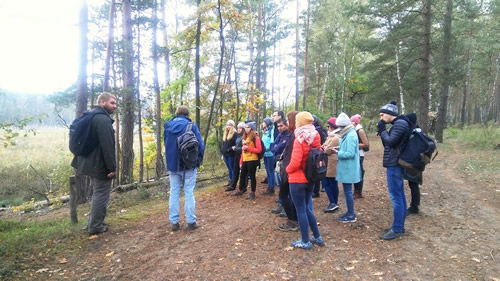 AB In the first semester students receive an introduction to issues of sustainable development from the environmental, economic and socio-legal perspective. In the second semester, they become acquainted with the planning and management processes as well as the use of raw materials and economic analysis in the implementation of the sustainable development goals, both in cities and in rural areas. Students have the opportunity to choose classes according to their interests. Semester III offers an overview of the best practices and tools currently used to support sustainable development processes. What we are planning for Semester III is to ask students to engage in practical projects with the participation of practitioners and experts from outside the University of Warsaw. Semester IV will be devoted to writing a master’s thesis and this will also done by a research study in organizations and institutions selected in accordance with the subject of the work being carried out. Forms of implementation of education modules used for SD are: lectures, student presentations, laboratory exercises, seminars, workshops and internship, as well as – given the specificity of natural studies – field and seminar exercises, trips to nature, engineering and cultural objects.
AB In the first semester students receive an introduction to issues of sustainable development from the environmental, economic and socio-legal perspective. In the second semester, they become acquainted with the planning and management processes as well as the use of raw materials and economic analysis in the implementation of the sustainable development goals, both in cities and in rural areas. Students have the opportunity to choose classes according to their interests. Semester III offers an overview of the best practices and tools currently used to support sustainable development processes. What we are planning for Semester III is to ask students to engage in practical projects with the participation of practitioners and experts from outside the University of Warsaw. Semester IV will be devoted to writing a master’s thesis and this will also done by a research study in organizations and institutions selected in accordance with the subject of the work being carried out. Forms of implementation of education modules used for SD are: lectures, student presentations, laboratory exercises, seminars, workshops and internship, as well as – given the specificity of natural studies – field and seminar exercises, trips to nature, engineering and cultural objects.
Once they have completed the programme, SD graduates will be prepared to undertake work in the following sectors: public, private and non-profit, in international or national organizations; in research, implementation and analytical centres and institutes, and hopefully in institutions dealing with environmental monitoring, local and regional development, in consulting companies, in scientific and R & D institutions, as well as in business. Indeed, the main objective of the SD study programme is to prepare students for effective work with stakeholders of all types and levels (international agencies, government institutions, local governments, institutions and organizations, associations, foundations, companies, citizens) responsible for implementing processes for sustainable development.
AZ This is impressive, and I’d love to know more about your students…
AB Our students have a high level of knowledge and awareness. All of them very consciously chose this field of study. For many of them this is a second MSc programme. Many of them already work in professions related to sustainable development – e.g. one student is responsible for the supply chain in her company. What surprised us most? After experience with running the Inter-disciplinary Programme in Environmental Protection and with such strong involvement of the faculties representing the natural sciences, we were expecting candidates also with a background in science; but most of our students have a background in sociology, political science and even psychology!
AZ Many thanks, Anna, for these insights into your work and your university! I hope many readers will be encouraged to develop a similar programme at their higher education institution…
Contact Anna Batorczak:
Download full conversation as pdf

